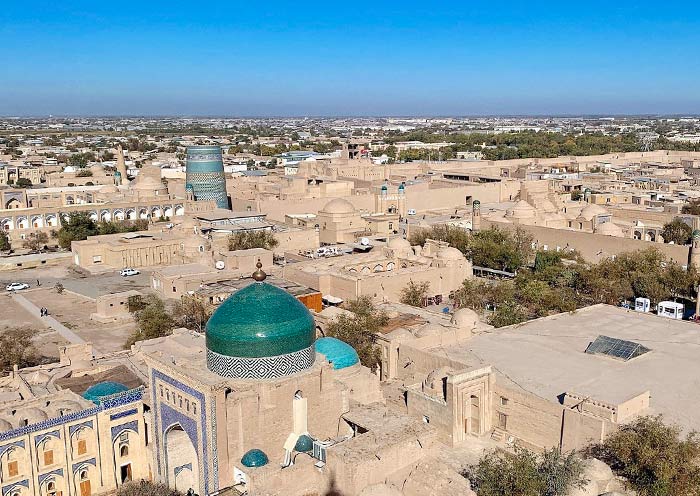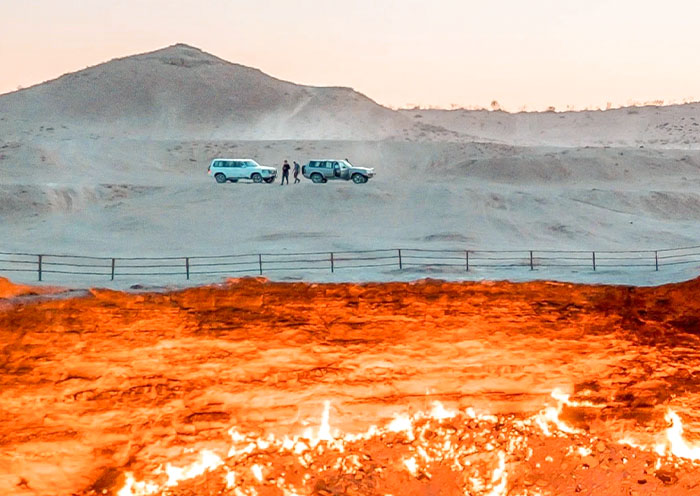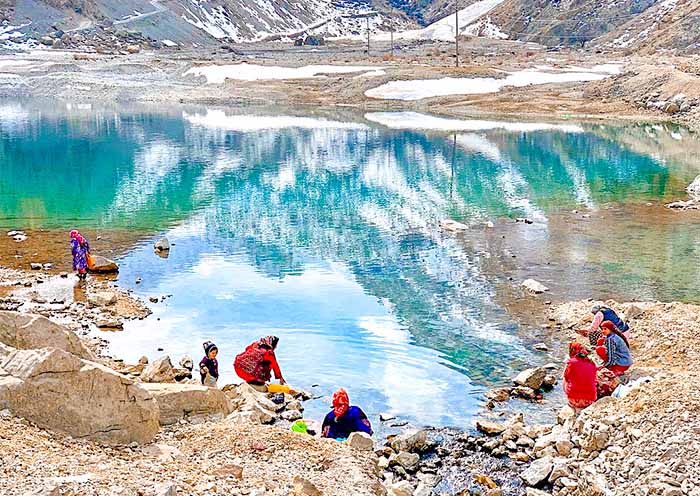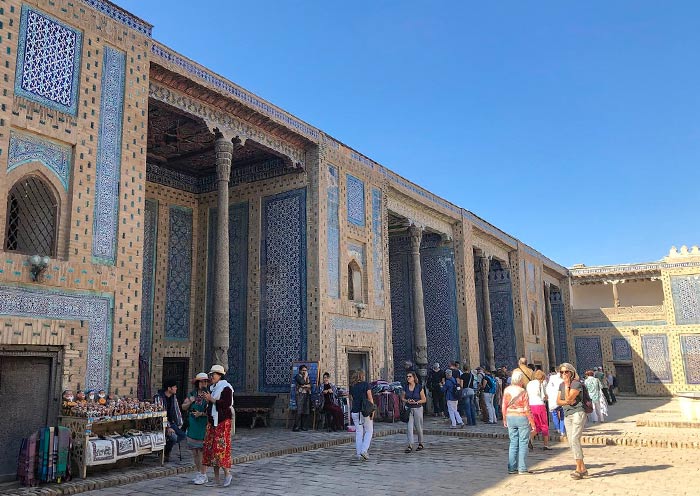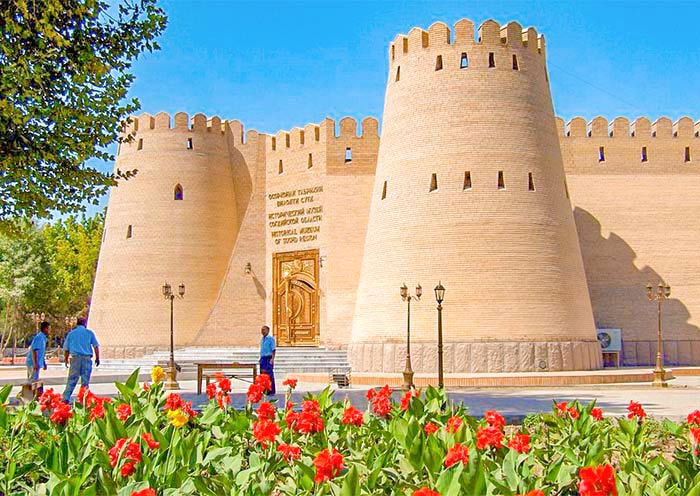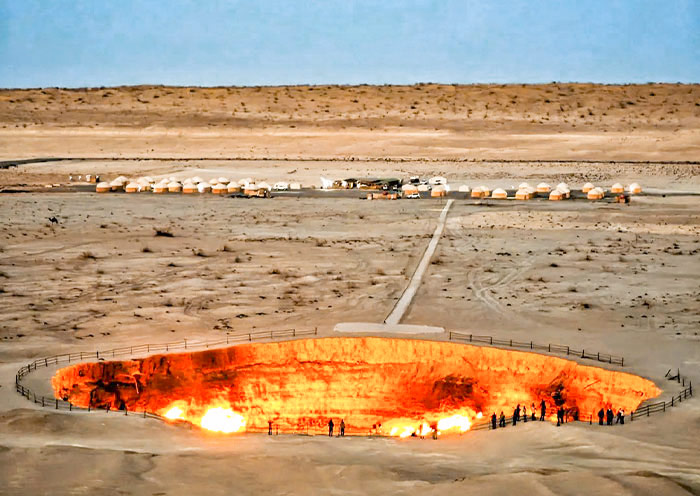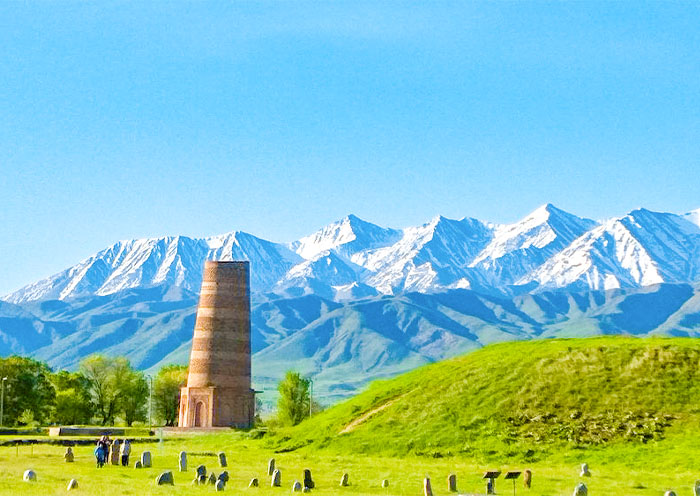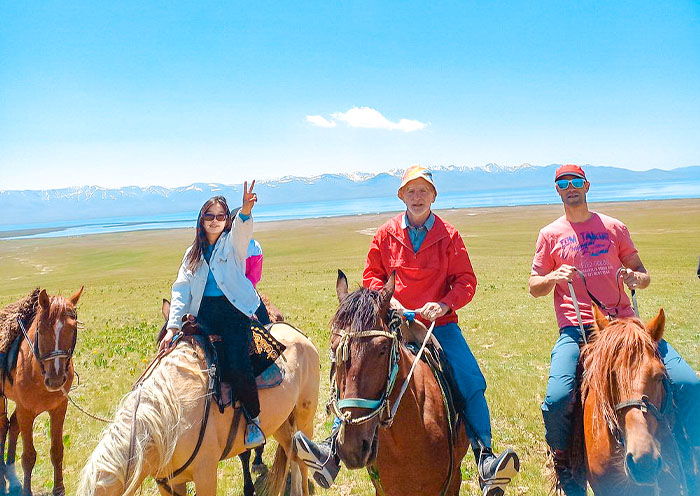14 Days Uzbekistan Tajikistan Turkmenistan: 3 Stans Tour, Silk Road & Desert Craters
- Highlights
- Itinerary
- Price
- Trip Notes
- Accommodation
- Photos
- Reviews
Hot-Selling Uzbekistan Tajikistan Turkmenistan Tour: Silk Road, Mountains & Adventure
Want to spend two weeks exploring the very heart of Central Asia? Our 14-Day Uzbekistan Tajikistan Turkmenistan Tour is the perfect way to experience three “Stans” in one seamless journey. If you are drawn to Silk Road culture, imperial history, dramatic nature, and adventure, this itinerary is designed for you.
The journey begins in Tashkent and moves clockwise, finishing back in Uzbekistan’s capital.
Opening – History: Start with Tashkent’s blend of modernity and tradition, then travel through Khujand - once Alexandria Eschate, “The Furthest Alexandria” — continue to Samarkand, the capital of the Timurid Empire, and Bukhara, immersing yourself in the golden age of the Silk Road.
Middle – Nature: Cross into Tajikistan to discover Penjikent, home of ancient Sogdian culture, and the Seven Lakes, where mountain scenery and light hikes refresh your spirit.
Climax – Adventure & Mystery: Enter Turkmenistan to explore Ancient Merv, camp beside the blazing Darvaza Gas Crater, visit Ashgabat’s gleaming white-marble cityscape, and see Kunya-Urgench, the former Khorezm capital.
Finale – Classic: End in Khiva, the best-preserved Silk Road city, for a perfect closing chapter.
14 days, 3 countries, endless contrasts - travel with the Central Asia experts at Asia Odyssey Travel!
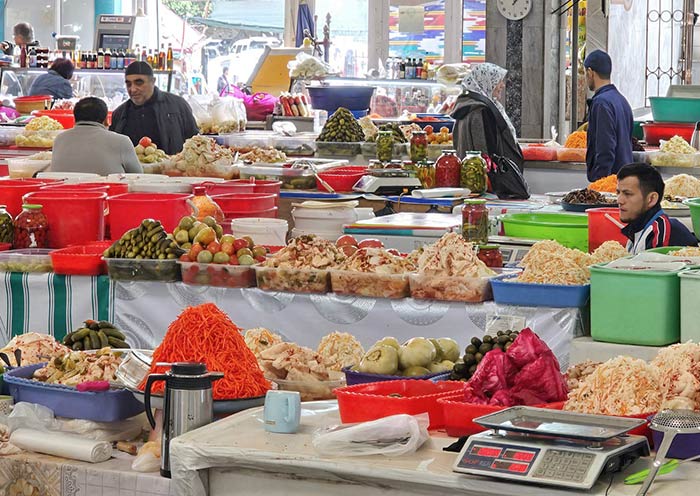
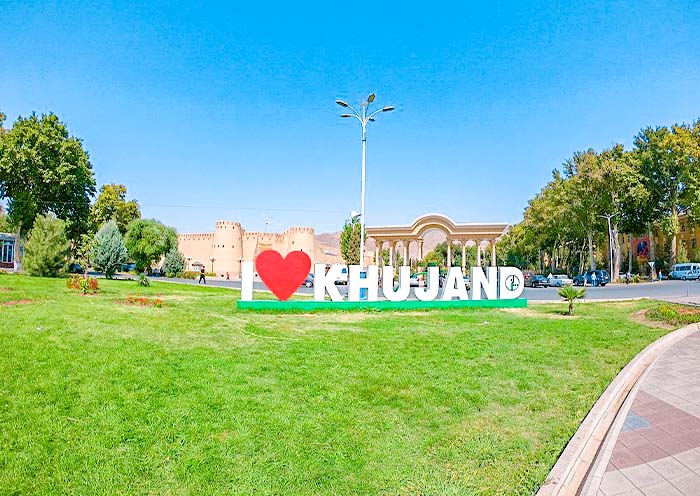
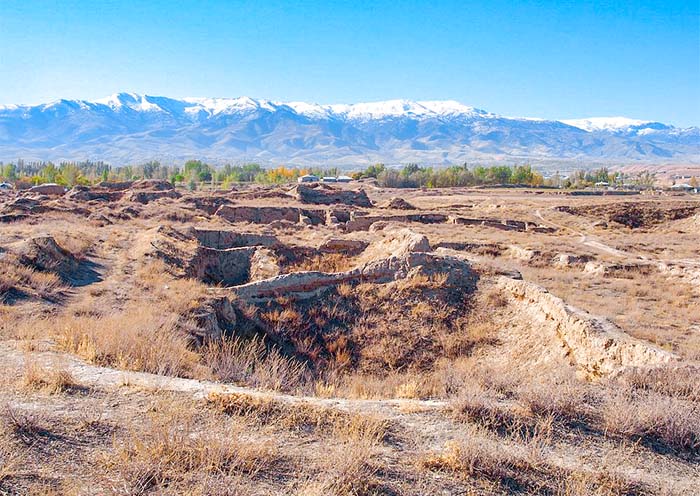
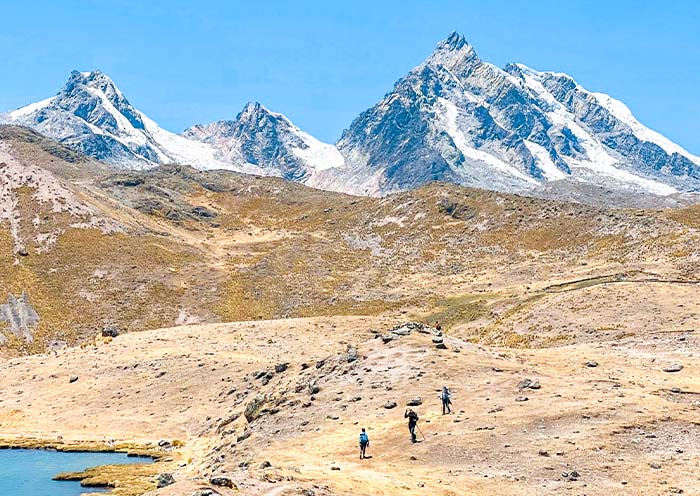
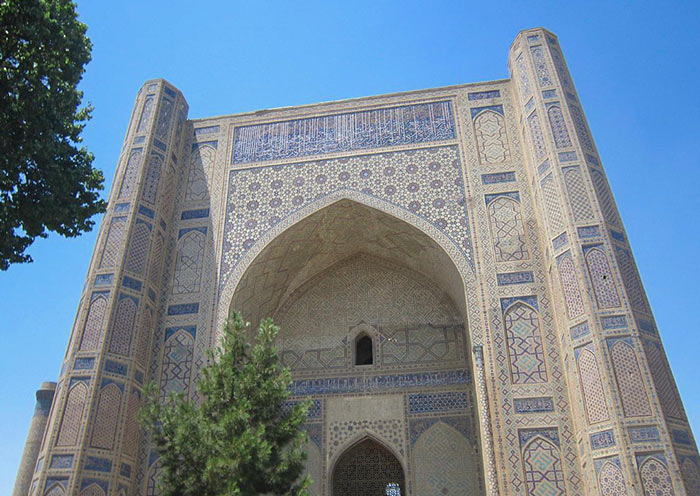
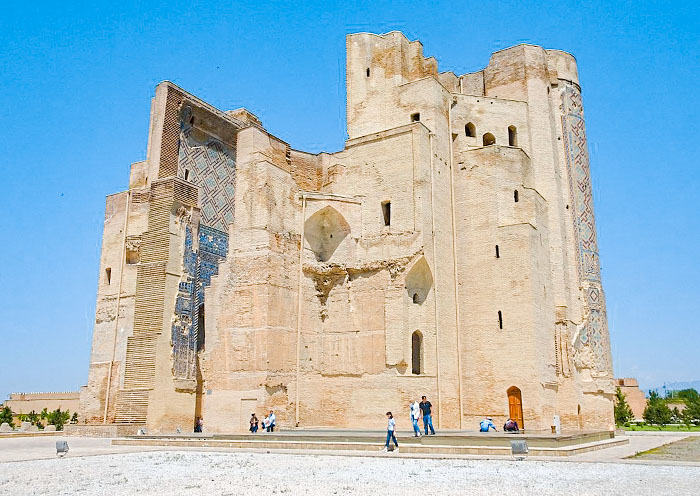
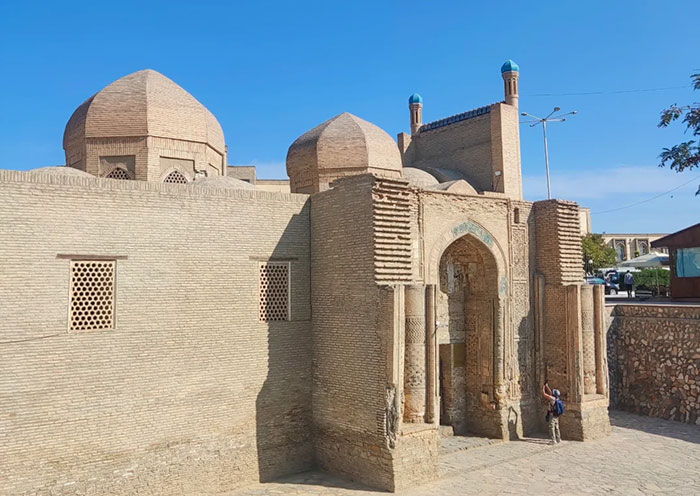
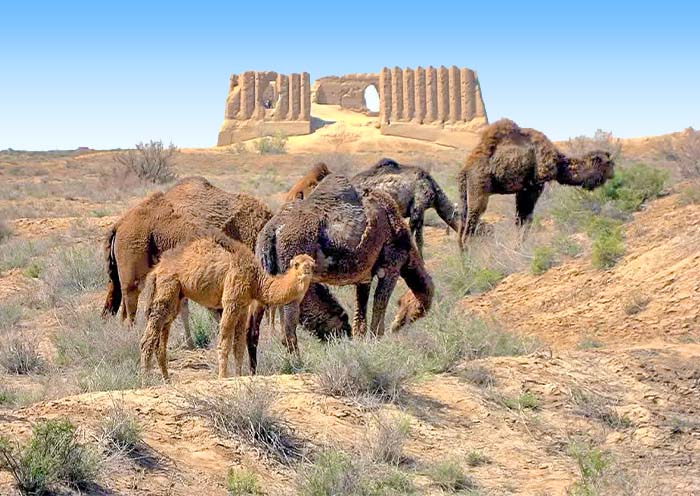
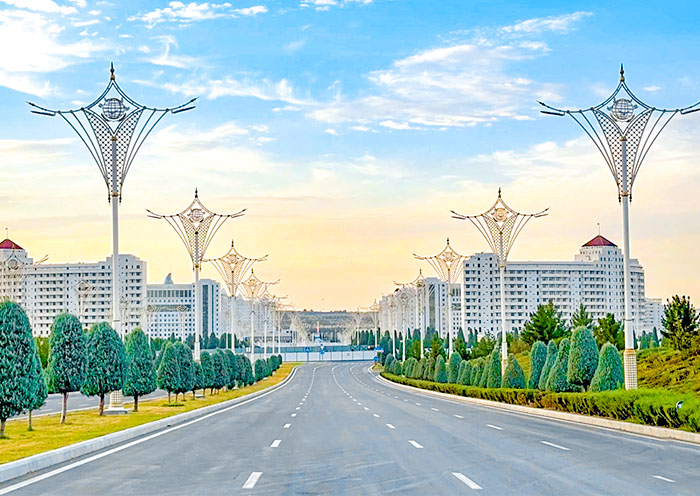
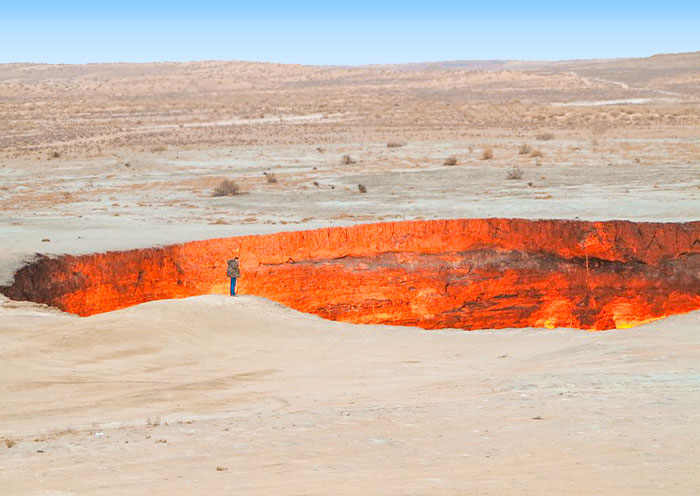
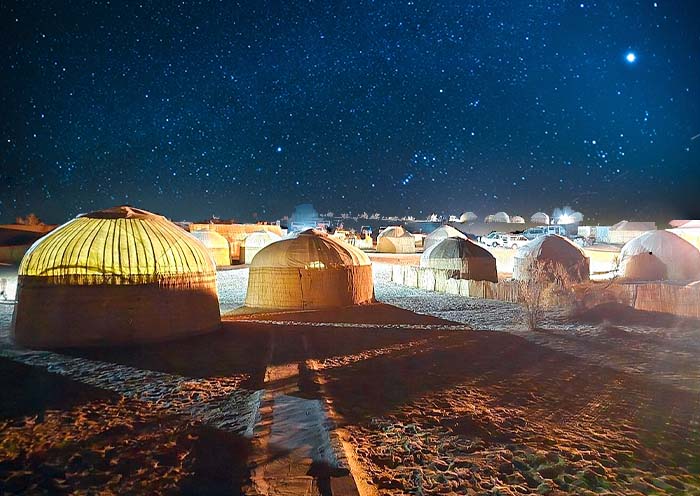
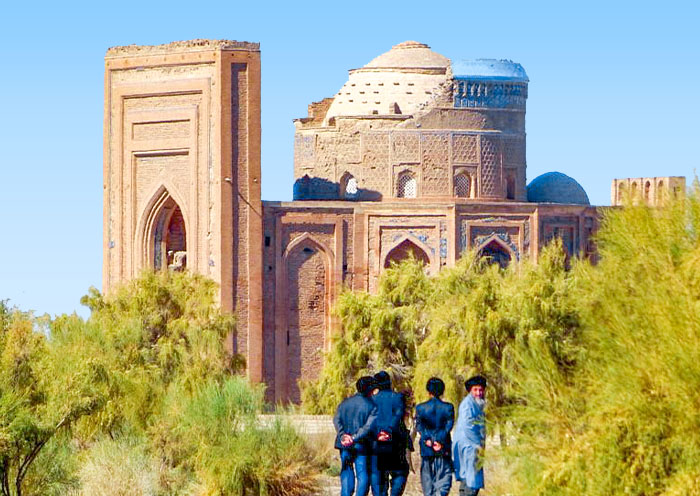
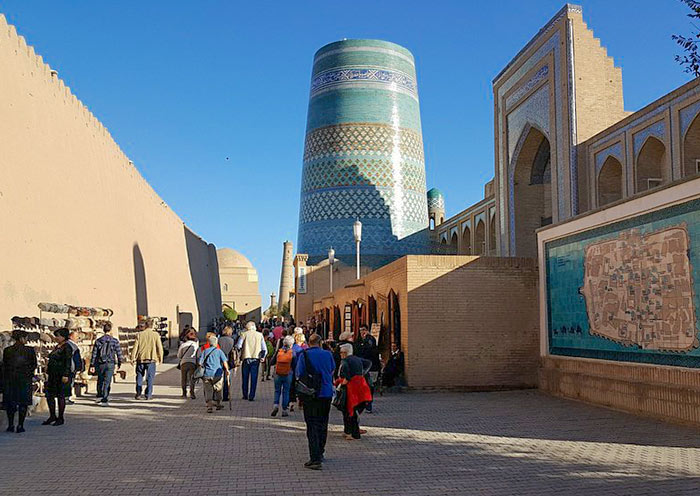
Itinerary at a Glance
Tashkent, Uzbekistan (2 Days)
Arrival in Tashkent; one-full day visit: Khast-Imam Complex (Hazrati Imam Complex), Chorsu Bazaar, State Museum of Applied Arts, Tashkent Metro (Soviet-era), Amir Timur Square
Oybek Border (Uzbekistan-Tajikistan, 0.5 Day)
Cross border at Oybek from Uzbekistan to Tajikistan
Khujand, Tajikistan (O.5 Day)
Sheikh Muslihiddin Complex, Panjshanbe Bazaar, Khujand Fortress
Penjikent, Tajikistan (1.5 Day)
Rudaki Museum, Ancient Penjikent Ruins, Short Hike between the Sixth and the Seventh of the Seven Lakes
Jartepa Border (Tajikistan-Uzbekistan border, 0.5 day)
Cross border from Tajikistan to Uzbekistan via Jartepa
Samarkand, Uzbekistan (1 Day)
Gur Emir Mausoleum (Timur’s Tomb), Registan Square, Bibi Khanim Mosque, Siyab Bazaar, Shahi Zinda Necropolis
Shakhrisabz, Uzbekistan (1 Day)
Drive from Bukhara to Samarkand; visit Shakhrisabz on the way: Ak-Saray Palace, Dorut Tilovat Complex, Dorus Saodat Complex
Bukhara, Uzbekistan (1 Day)
Chor Minor Madrasah (Four Minarets), Lyabi Hauz Ensemble (Afandi/Khodja Nasreddin Statue), Trading Domes, Po-i-Kalyan Complex (Kalyan Minaret)
Farap Border (Uzbekistan to Turkmenistan, 0.5 Day)
Cross border via Farap into Turkmenistan
Mary, Turkmenistan (0.5 Day)
Ancient Merv, Big and Little Kyz-Kalas, mausoleums of Sultan Sanjar and Muhammed ibn-Zeyd, Mary History Museum
Ashgabat, Turkmenistan (1.5 Day)
Neutrality Monument, National Museum, Independence Monument, Turkmen Carpet Museum, Alem Cultural and Entertainment Center (outlook), Palace of Happiness (outlook), Ertugrul Gazi Mosque, Akhal-Teke horses, Gulistan Bazaar
Darvaza Gas Crater, Turkmenistan (1 Day)
Camping night in the desert, dinner
Kunya-Urgench, Turkmenistan (0.5 Day)
Kutlug-Timur Minaret, Mausoleum of Sultan Tekesh, Mausoleum of Turabeg Khanum, Mausoleum of Il Arslan
Shavat-Dashoguz border crossing
Drive from Khiva to Kunya-Urgench via Shavat-Dashoguz
Khiva, Uzbekistan (0.5 Day)
Ichan-kala (Kalta Minor Minaret, Pakhlavan Makhmud Mausoleum, Islam Khoja Minaret, Juma Mosque, Tosh Hovli Palace, Kuhna Ark); train to Bukhara
Urgench, Uzbekistan (0.5 Day)
Take flight from Urgench International Airport back to Tashkent
Tashkent, Uzbekistan (1 Day)
Departure
Itinerary Day by Day
Hello travelers! Welcome to Tashkent, Uzbekistan’s vibrant capital and largest city! This modern metropolis is the perfect gateway to the country’s Silk Road wonders, seamlessly blending Soviet-era grandeur with contemporary spirit.
Upon landing at Tashkent International Airport, your guide will meet you at the arrival gate, holding a sign with your name. From there, enjoy comfortable transfer to your downtown hotel, where you can settle in and rest after your journey. (Travel tip: the airport is conveniently located just about 7 km southeast of the city center, a quick and easy transfer.)
Arrival in Tashkent
Fly into Tashkent International Airport (TAS), the main gateway to Uzbekistan, served by major airlines such as Uzbekistan Airways, Turkish Airlines, and Lufthansa, with direct flights from Moscow, Dubai, Istanbul, Seoul, and Beijing. For a seamless trip, double-check flight options with Asia Odyssey Travel before booking.
Visa & Entry Requirements
Travel is hassle-free: over 60 nationalities enjoy visa-free entry, while others can easily apply online for an e-visa. Be sure your passport is valid for at least six months, and confirm the latest entry rules through Uzbekistan’s official e-visa portal before departure.
Optional Sightseeing (If Time Allows)
- Alisher Navoiy Theater (Self-pay) - Step inside one of Central Asia’s grandest theaters to enjoy opera, ballet, or concerts in beautifully decorated halls.
- Magic City Park: Known as Tashkent’s “Little Disneyland,” this amusement park offers fairy-tale architecture, light shows, and family-friendly entertainment. Entry is free; pay per ride or activity.
Dinner Suggestion
If you arrive in the late afternoon, treat yourself for Uzbek cuisine. Beyond the classic plov (rice pilaf) and shashlik (grilled kebabs), try lagman (noodles in rich meat and vegetable broth), manti (steamed dumplings), and freshly baked naan straight from a clay oven.
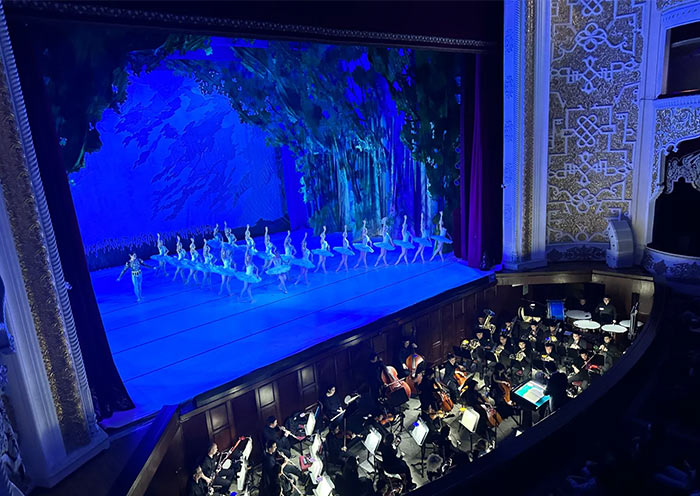
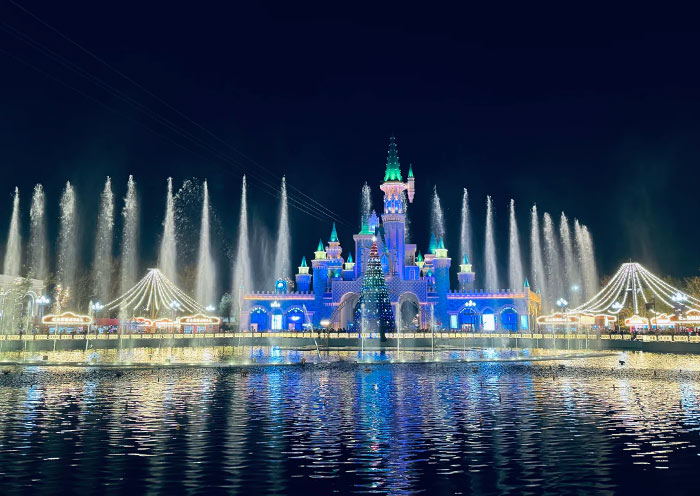
After breakfast, set out for full-day exploration of Tashkent, Uzbekistan’s vibrant capital and a city where centuries-old tradition meets modern charm.
Begin your day in the Old City at the Khast-Imam Complex, the spiritual heart of Tashkent. This serene ensemble of blue-domed mosques, mausoleums, and madrasahs invites you to step back in time. Here you’ll find the elegant Hazrati Imam Mosque, whose twin 53-meter minarets and gold-leafed domes dominate the square, as well as the Tillya Sheikh Mosque, Barak Khan Madrasah, and the Mausoleum of Abu Bakr Kaffal Shashi, a 10th-century scholar, poet, and locksmith-saint after whom the complex is named. Be sure to visit the Mui Muborak Library, home to the revered 7th-century Osman Qur’an - one of the world’s oldest copies.
After soaking up the complex’s peaceful atmosphere, stroll through Barak Khan Madrasah, now home to artisan workshops and boutiques. Watch local masters create ikat fabrics, woodcarvings, pottery, and jewelry, giving you a chance to bring home a unique handmade souvenir.
Continue your immersion in local culture with a visit to Chorsu Bazaar, Tashkent’s largest and most iconic marketplace. Beneath its turquoise dome, vendors sell colorful spices, dried fruits, fresh bread still warm from the tandoor, and vibrant handicrafts. Sample street food, chat with friendly locals, and experience the daily rhythm of Tashkent life.
Next, explore the State Museum of Applied Arts, where more than 7,000 exhibits showcase Uzbekistan’s finest craftsmanship from the 19th century to today. Admire intricate gold embroidery, suzani textiles, ceramics, jewelry, carpets, and woodcarvings, gaining a deeper appreciation for the country’s artistic traditions.
In the afternoon, descend underground for a ride on the Tashkent Metro - an experience in itself. As the first subway system in Central Asia, it is a living museum of Soviet architecture and Uzbek decorative art. Each station is uniquely designed, from Kosmonavtlar with its cosmonaut-themed mosaics to Paxtakor with cotton motifs.
Emerge at Amir Timur Square, the heart of modern Tashkent. Surrounded by landmarks such as Hotel Uzbekistan, the Palace of International Forums, and the University of Law, the square is anchored by a bronze equestrian statue of Amir Timur, the great Central Asian conqueror and founder of the Timurid Empire. Take time to relax by the fountains, stroll through the green spaces, and - if time allows - visit the Amir Timur Museum (closed Mondays), whose striking dome is depicted on the 1,000-som banknote. Inside, discover fascinating exhibits on Timur’s life and legacy.
After the tour, be escorted to the hotel in Tashkent.
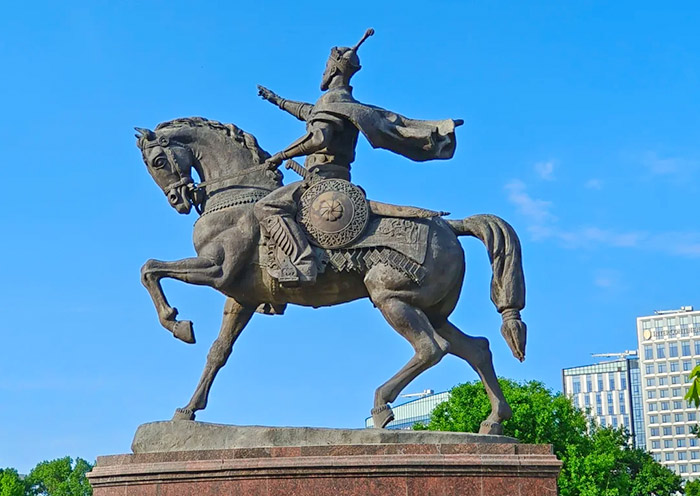
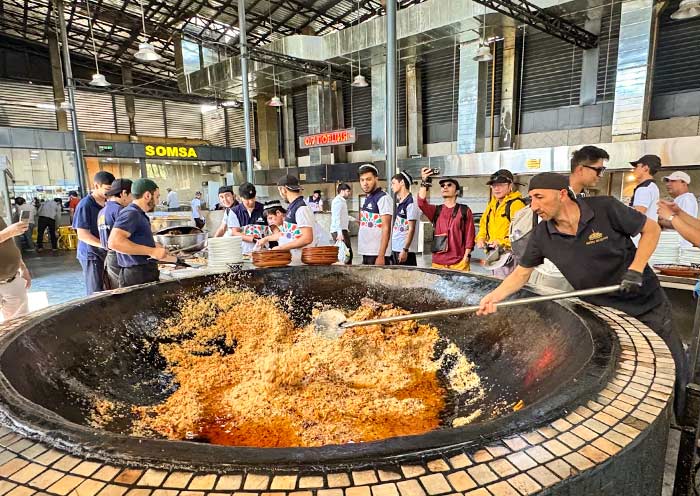
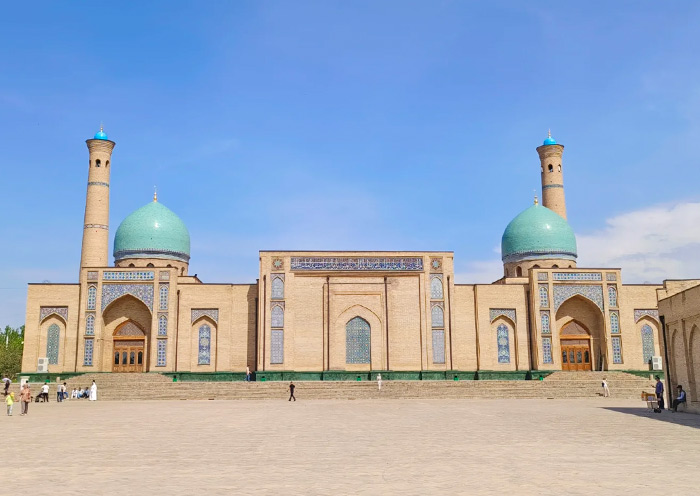
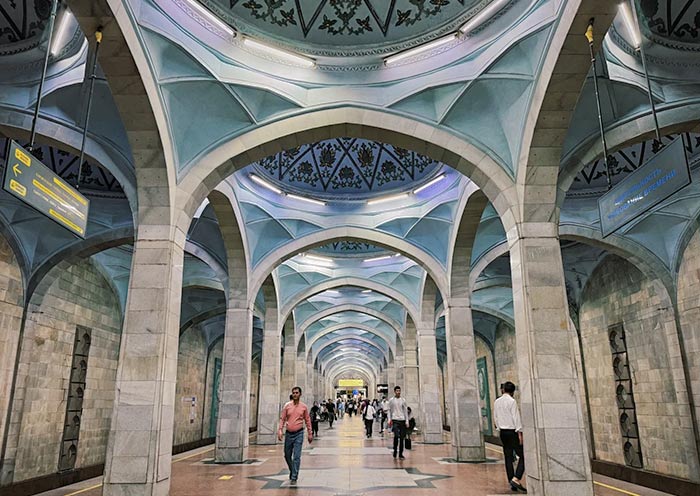
After breakfast, it’s time to leave Tashkent, the vibrant capital of Uzbekistan, and cross the border at Oybek. After completing the border formalities, bid farewell to your Uzbek guide and driver, then walk across the border where your Tajik guide and driver will be waiting to welcome you.
Continue onward to Khujand, located in the far north of Tajikistan. With over 2,500 years of history, Khujand is one of the oldest cities in Central Asia and is believed to have been founded by Alexander the Great himself, who called it Alexandria Eschate - “The Furthest Alexandria.” Once an important Silk Road hub, Khujand retains a fascinating blend of history, culture, and tradition.
In this afternoon, fully explore Khujand. Begin with a visit to the Sheikh Muslihiddin Complex, the spiritual heart of the city. Its highlight is the Mausoleum of Sheikh Muslihiddin, built in honor of the 12th-century poet, ruler, and religious leader. Admire the intricate brickwork patterns on the exterior and the beautifully painted ceilings, carved wooden details, and artistic ornamentation inside. You will often see locals for daily prayers, while flocks of pigeons gather peacefully in the square. Peaceful and relaxing here.
Next, walk a few steps to Panjshanbe Bazaar, one of the oldest and liveliest markets in Khujand. Catch the great chance to experience daily Tajik life here. Stroll through rows of stalls overflowing with fresh fruits, vegetables, dried fruits, and spices. You will also find traditional Tajik clothing, colorful textiles, and handmade crafts. Even, you can try local favorites such as samsa (savory pastries), shashlik (grilled meat skewers), and osh/plov (pilaf). The friendly and warm Tajik people will impress you.
This afternoon, explore the Khujand Fortress and Historical Museum of Khujand (Sughd Region Museum). Home to more than 15,000 artifacts, the museum showcases rare handwoven Tajik rugs, exquisite embroidery, pottery, household items, and traditional costumes. As you explore, trace Khujand’s history from the time of Alexander the Great to the modern era, and learn the legendary story of the local hero Timur Malik.
Don’t miss the striking marble mosaics depicting the life of Alexander of Macedon, who founded the most distant of his cities here in 329 BC, and see the statue of Timur Malik, celebrated for his courageous stand against the Mongol invasion in 1219–1220. Afterward, stroll around the fortress ruins, run your hands along the ancient brick walls, and imagine the fierce battles once fought here.
After the tour, be escorted to your hotel in Khujand.
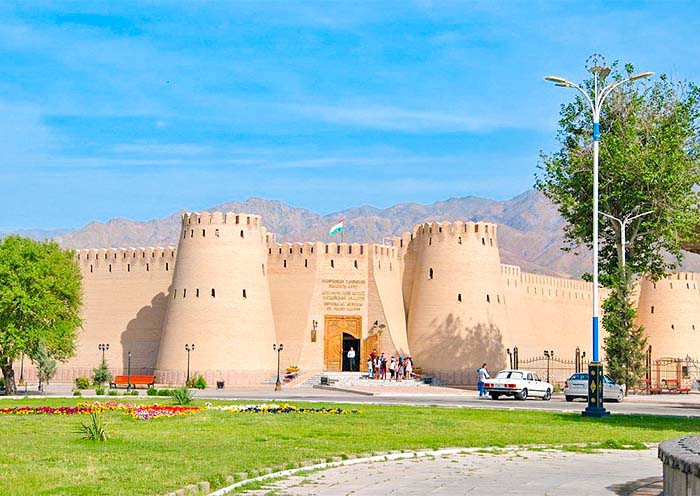
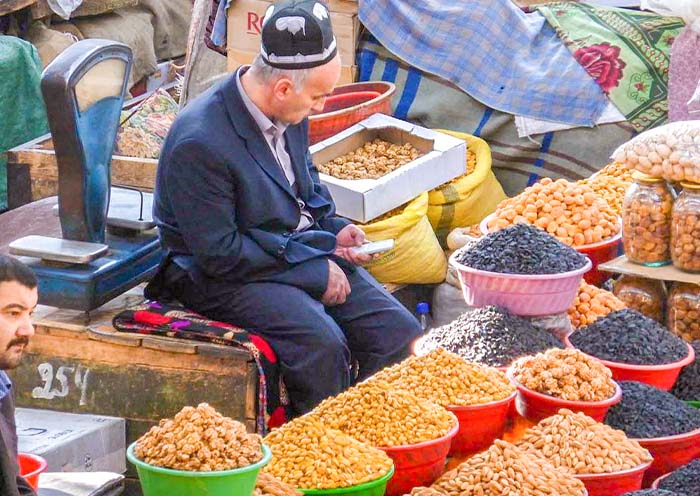
After breakfast, you will depart from Khujand to Penjikent (257km, about 4-5 hours’ drive).
Known as the “Pompeii of Central Asia,” Penjikent was once a major center of the ancient Sogdian civilization. Between the 5th and 8th centuries, this city thrived as a cultural and commercial hub on the Silk Road. The Sogdians were known as the “soul of the Silk Road,” dominating trade across Eurasia - from Chinese silk to Western glassware and Indian spices.
Upon arrival, check in at your hotel and begin exploring Penjikent. Start with the Rudaki Museum, home to thousands of artifacts unearthed from local excavations - pottery, coins, sculptures, and tools - which vividly depict the Sogdian way of life. Here you’ll discover their art, clothing, mythology, and even scenes of feasts and rituals.
Next, visit the Ancient Penjikent Ruins, the remarkably preserved remains of a complete 5th–8th century Sogdian city. As you walk among the mud-brick foundations of palaces, residential quarters, temples, and fortifications, you can clearly visualize the city’s original layout and imagine the bustling life of the Silk Road era.
Travel Note: As you head deeper into the Fann Mountains, expect simpler tourist infrastructure. Tonight, you will stay in the best available local hotel, but with more basic amenities compared to the big cities. Consider this part of the adventure and a chance to experience authentic Tajik hospitality.
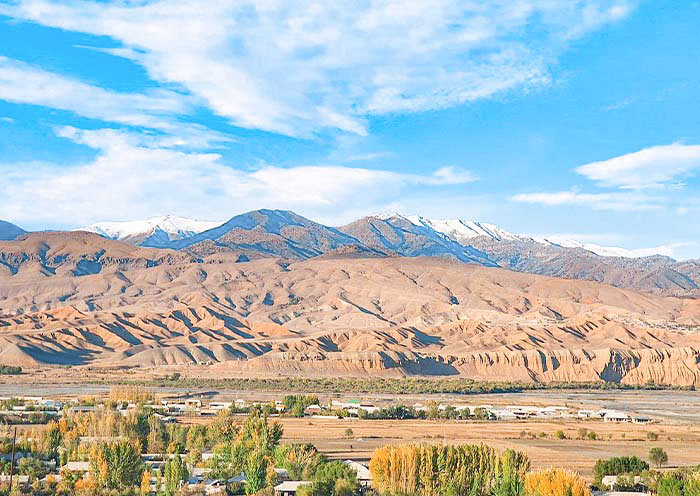
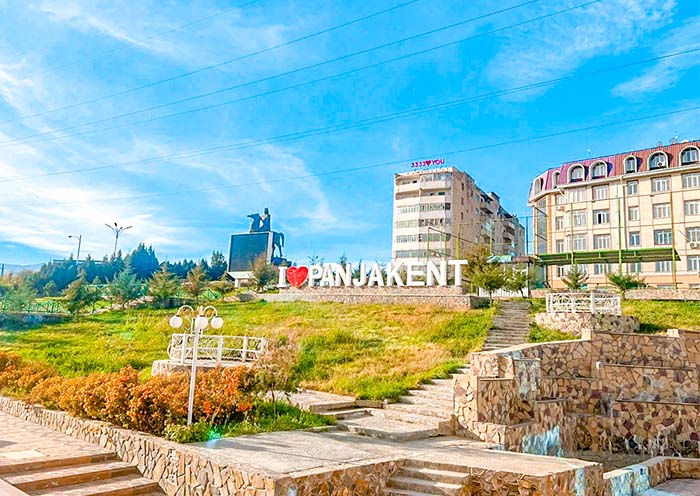
After breakfast, set out on adventure to explore Tajikistan’s legendary Seven Lakes, known locally as Haftkul or the Marguzor Lakes. These seven glacier-fed lakes are strung together by a single river, like a sparkling necklace laid across the valley floor.
Your journey begins with a bumpy but scenic drive into the mountains. Though the Seven Lakes are not far from Penjikent, the rugged road makes this a full-day trip. As you travel deeper into the valley, you’ll pass the first five lakes - Nejigon, Soya, Gushor, Nofin, and Khurdak - each with its own distinct color, ranging from pale green to vivid turquoise and deep blue. It’s like nature’s own painter’s palette.
Light Hike from the Sixth to the Seventh of the Seven Lakes:
You’ll reach Marguzor, the sixth and largest lake, a dazzling expanse of sapphire water framed by dramatic peaks. From here, take an easy two-hour round-trip hike to Hazorchashma, the seventh and highest lake, whose name means “A Thousand Springs.” The water here is crystal clear, and the surrounding atmosphere feels serene and untouched.
Enjoy a picnic by the lakeshore, soak in the alpine views, and perhaps take a short stroll through the nearby villages to experience the simple, authentic rhythm of Tajik mountain life.
In the afternoon, drive to the Tajikistan–Uzbekistan border at Jartepa, then continue to Samarkand, Uzbekistan, for overnight accommodation.
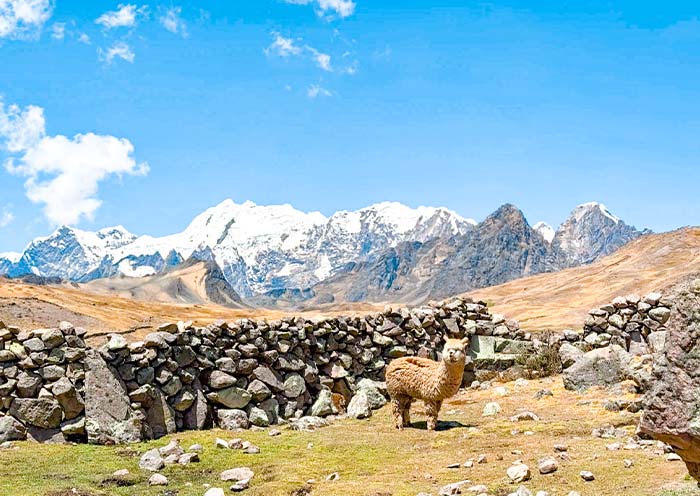
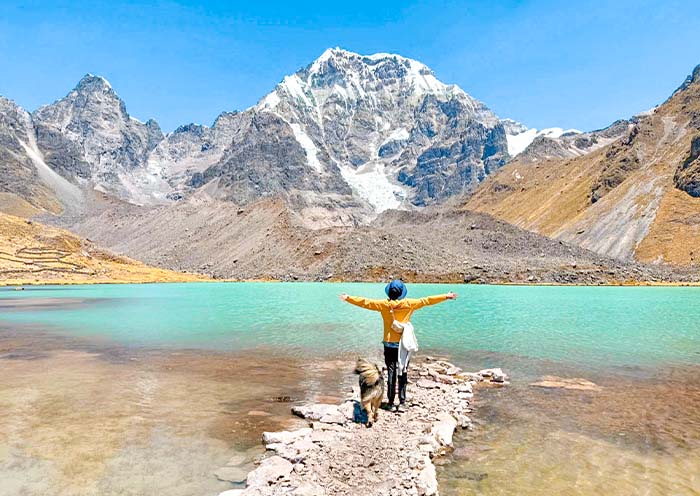
Today, immerse yourself in Samarkand, a UNESCO World Heritage Site and the former capital of the Timurid Empire (14th–15th centuries). Known as Uzbekistan’s cultural heart and second-largest city, Samarkand dazzles visitors with its monumental architecture, Silk Road legends, and vibrant bazaars. From the majestic Gur-e Amir Mausoleum to the iconic Registan Square, the grand Bibi Khanim Mosque, the breathtaking Shahi Zinda Necropolis, and the lively Siyab Bazaar, you will discover a city that celebrates the glory and power of the Timurid dynasty.
Begin at Gur-e Amir Mausoleum, the final resting place of Amir Timur (Tamerlane), completed in 1404. This striking monument, crowned with a ribbed azure dome, served as a prototype for later Mughal architecture, including India’s Taj Mahal. Step inside to marvel at its gilded interior, intricate jade tombstones, and delicate calligraphy. Look for Timur’s legendary grave marker, said to carry a warning: “Whosoever disturbs my tomb will unleash an invader more terrible than I.” When Soviet archaeologists opened the tomb in June 1941, Nazi Germany invaded the USSR days later - a story that adds an air of mystery to your visit.
Next, head to Registan Square, the heart of Samarkand and one of the Silk Road’s most magnificent sights. Once a sandy gathering place for royal decrees, military parades, and festivals, it is now flanked by three resplendent madrasahs: Ulugh Beg Madrasa (1420), with its starry celestial mosaics; Sher-Dor Madrasa (1619), famed for its unique lion mosaics; and Tilya-Kori Madrasa (1660), with a dazzling gold-leaf dome that graces the cover of many guidebooks. By day, Registan is a masterpiece of symmetry and tilework; by night, it transforms under magical illuminations - a perfect spot for photography.
Continue to the monumental Bibi Khanim Mosque, one of the largest in the Islamic world. Built in 1404 to honor Timur’s wife, the mosque is steeped in legend - including the tale of the architect who dared to kiss Bibi Khanim and met Timur’s wrath. Step inside to admire gilded decorations inspired by local embroidery traditions.
Right nearby lies Siyab Bazaar, where you can sample Samarkand’s famous round bread, dried fruits, and spices while mingling with locals - a lively reminder that Samarkand was once a key Silk Road trading hub.
End your day with a stroll through Shahi Zinda Necropolis, an extraordinary “avenue of mausoleums” climbing a hillside. This necropolis, dating from the 11th to 15th centuries, contains some of the finest examples of Timurid-era tilework and the tombs of Timur’s female relatives and high-ranking nobles. The site is also believed to house the grave of Qutham ibn Abbas, cousin of Prophet Muhammad, making it a revered pilgrimage site. With its brilliant turquoise domes and intricate mosaics, Shahi Zinda is not just a spiritual landmark but also one of Samarkand’s most photogenic spots.
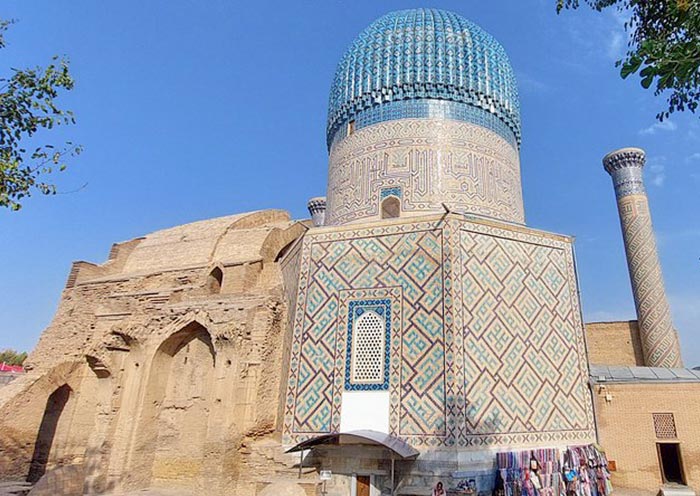
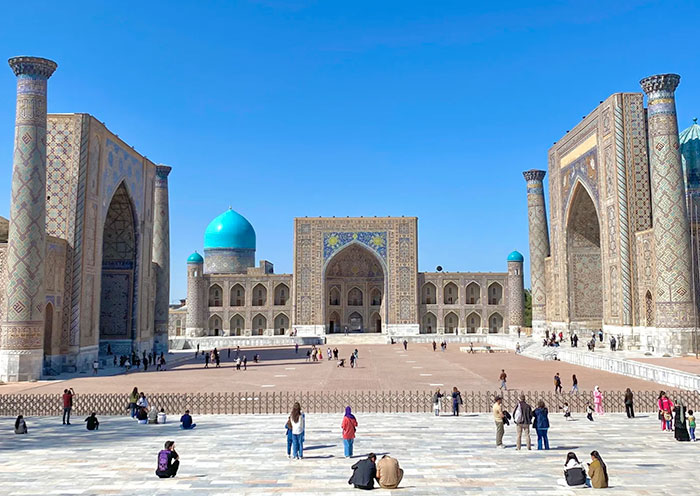
After breakfast, depart Samarkand and set out for Bukhara, stopping en route in Shakhrisabz - the birthplace of the great conqueror Amir Timur (Tamerlane).
The journey to Shakhrisabz takes about 1.5-2 hours (92 km), passing through gentle hills and green farmland. Upon arrival, step back into the Timurid era as you explore the city’s remarkable landmarks.
Begin with the Ruins of Ak-Saray Palace, Timur’s magnificent summer residence. Though only parts of the colossal gateway remain, its scale is breathtaking — the arch once soared over 40 meters high, with blue-glazed tiles that still shimmer under the sun, hinting at its former splendor.
Continue to the Dorut Tilovat Complex, a peaceful ensemble of religious monuments honoring Timur’s spiritual teacher, Sheikh Shamsiddin Kulol. Here, admire the Kok Gumbaz Mosque, or “Blue Dome,” built by Timur’s grandson, the famed astronomer Ulugh Beg.
Your last stop is the Dorus Saodat Complex, planned as the royal family’s mausoleum. Walk through the quiet courtyards and visit the crypt believed to have been prepared for Timur himself — a poignant reminder of his legacy.
After the tour, enjoy a scenic 4.5-5-hour drive (264 km) to Bukhara, arriving by late afternoon or evening. Have a good sleep in Bukhara.
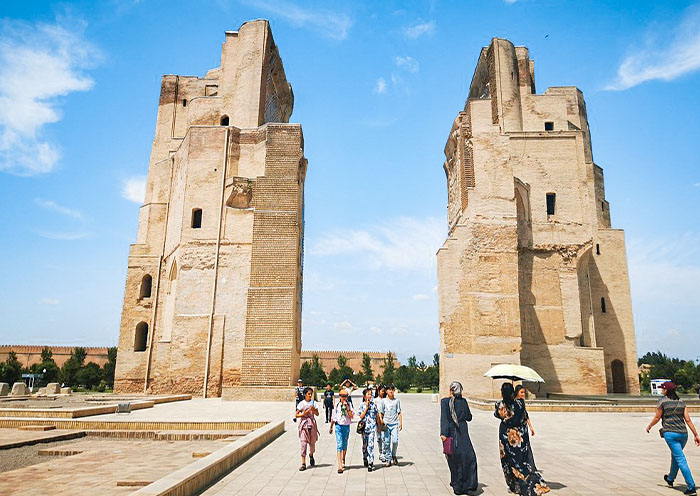
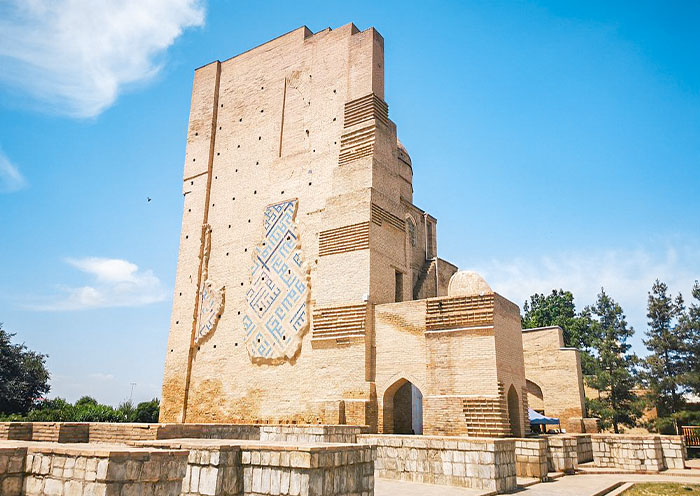
Bukhara is a compact, walkable city where nearly all monuments lie within 5 km of each other - perfect for a leisurely day of exploration.
Continue to Lyabi Hauz Ensemble, the lively heart of 17th-century Bukhara. This square was built around a tranquil pool shaded by ancient mulberry trees and surrounded by three remarkable monuments: the Nadir Divan-Beghi Madrasah and Khanaka, and the Kukeldash Madrasah. Once a busy Silk Road trading hub, Lyabi Hauz remains vibrant today, with teahouses, artisans, and locals gathering around the charming statue of Khodja Nasreddin (Afandi), the beloved trickster-philosopher of Central Asian folklore.
Stroll through the historic Trading Domes, a series of 16th-century bazaars that once specialized in jewelry, currency exchange, hats, and carpets. Today, they are filled with stalls selling traditional crafts, textiles, and souvenirs, offering a lively glimpse into Bukhara’s mercantile past.
Your walking tour ends at the majestic Po-i-Kalyan Complex, the spiritual and architectural centerpiece of the city. The iconic Kalyan Minaret (built in 1127 and spared by Genghis Khan) towers 47 meters over the square, joined by the vast Kalyan Mosque - capable of holding 10,000 worshippers—and the stunning Mir-i-Arab Madrasah with its turquoise domes and intricate tilework.
Stay overnight in Bukhara.
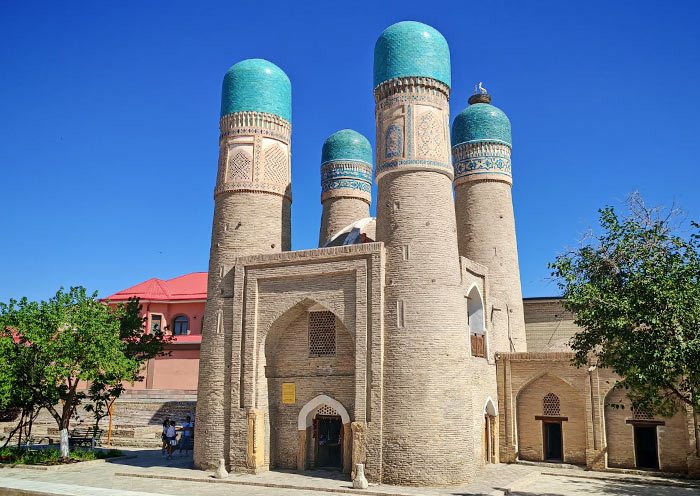
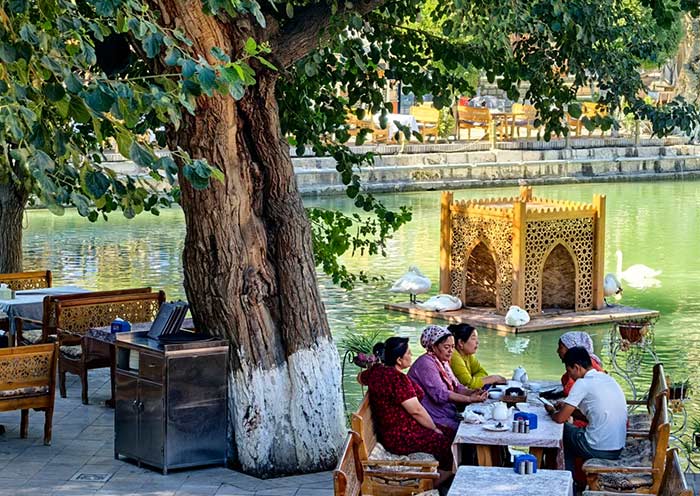
After breakfast, bid farewell to Bukhara and make your way to the Farap Border for your journey into Turkmenistan. After completing customs and passport control on both sides, walk to the exit where your Turkmenistan guide and driver will be waiting.
From here, enjoy a scenic drive (about 239 km, 5-6 hours) through desert landscapes toward Ancient Merv - one of the most important Silk Road cities in history.
This afternoon, step into the past as you explore Ancient Merv, a UNESCO World Heritage Site and one of the best-preserved oasis cities along the Silk Road. With more than 4,000 years of history, Merv reached its peak in the medieval era, when its population exceeded one million - earning it the titles “Queen of the World” and “Jewel of the Silk Road.”
Explore its vast 1,200-hectare archaeological park, where successive cities tell the story of Merv’s evolution: Erk Kala and Gyaur Kala (ancient), Sultan Kala (medieval), and Abdulla-Khan Kala and Bayram-Ali-Khan Kala (post-medieval). Visit the impressive 6th–9th century Big and Little Kyz-Kalas - striking examples of “corrugated” fortresses - and admire the stunning 12th-century mausoleums of Sultan Sanjar and Muhammad ibn-Zeyd, masterpieces of Seljuk architecture with beautiful brickwork and decoration.
After your exploration, transfer to nearby Mary for an overnight stay.
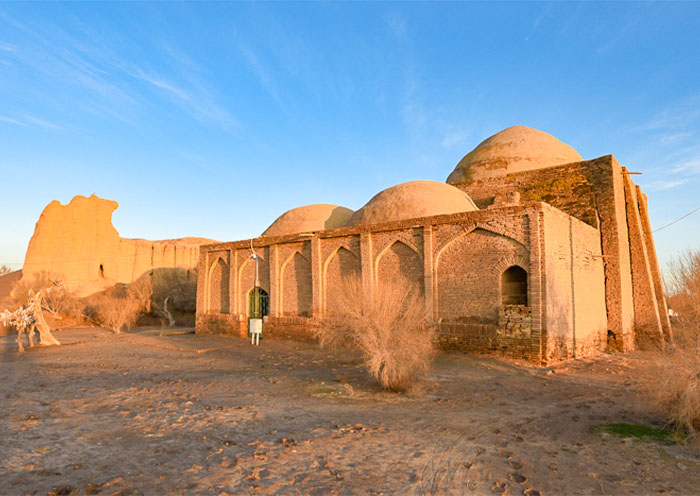
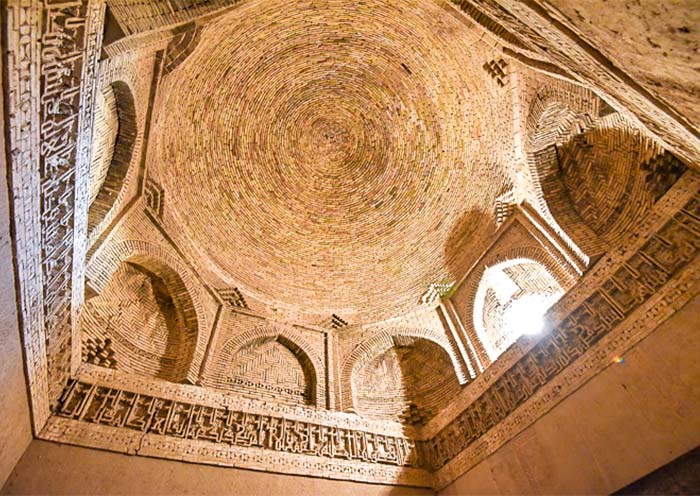
On this day, transfer to the Mary Airport for your morning flight to Ashgabat (about 40 mins).
Ashgabat, the capital, is a pure white world, truly unique. It has been recognized by the Guinness World Records as the city with the highest density of white marble buildings. More than 500 structures are decorated with shining marble. Your driver will take you on a ride through these white giants, making you feel as if you’ve entered film-like world, similar to The Truman Show. Today, begin your adventure in Ashgabat.
After breakfast, set out to explore the architectural marvels and cultural highlights of Ashgabat, famously known as the “White City” for its gleaming marble-clad buildings.
Begin at the Neutrality Monument, a striking 75-meter-high, tripod-shaped arch built in 1998 to symbolize Turkmenistan’s permanent neutrality and its commitment to peace and goodwill. From its viewing platform, enjoy sweeping panoramas of the capital.
Continue to the National Museum of Turkmenistan, one of Central Asia’s finest museums. Its white-marble exterior, crowned by a brilliant blue dome and golden statues, is as impressive as the treasures inside. With over 500,000 artifacts on display, you’ll discover archaeological finds from legendary Silk Road sites like Nisa, Merv, and Gonur Depe. Admire coins, weapons, pottery, and exquisite gold jewelry, along with traditional clothing that tells the story of Turkmen heritage. Don’t miss the museum’s star exhibits - the ancient rhytons, ceremonial drinking vessels of extraordinary beauty.
Next, stroll through Independence Park, home to statues of poets, philosophers, and national heroes, and marvel at the soaring Independence Monument, a 118-meter masterpiece built to commemorate Turkmenistan’s independence in 1991.
Later, visit the Turkmen Carpet Museum, where you can admire the world’s largest handwoven carpet (301 m², recognized by the Guinness World Records), discover the intricate weaving techniques passed down for generations, and learn about the symbolism behind traditional patterns.
In the afternoon, see more of Ashgabat’s futuristic skyline. Make a brief stop to admire the Alem Cultural and Entertainment Center - featuring the world’s largest indoor Ferris wheel - and the distinctive Palace of Happiness, whose design resembles an eight-pointed star embracing a globe.
Stay overnight in Ashgabat.
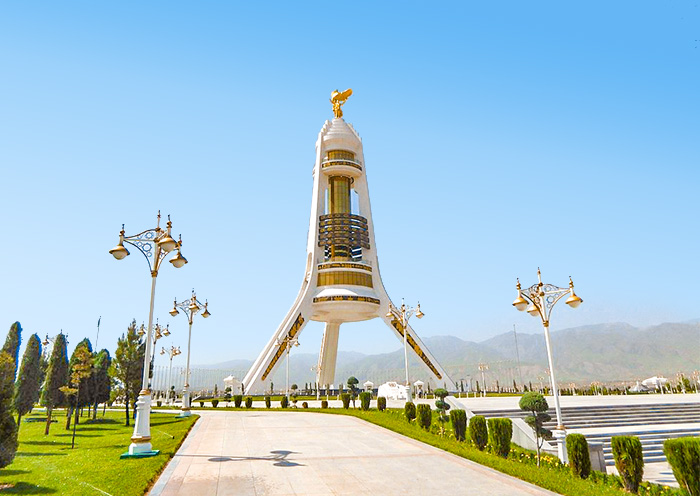
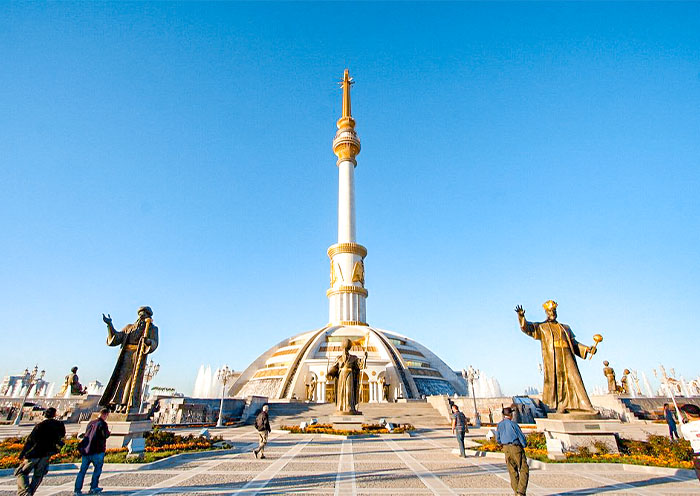
After breakfast, continue to the Ertugrul Gazi Mosque. Built in the 1990s as a gift from the Turkish government, this magnificent mosque was constructed entirely in the style of the Ottoman Empire, and its exterior is very similar to Istanbul's famous Blue Mosque. Upon arrival, you'll be struck by its four towering minarets and a magnificent central dome, all built from solemn white marble. Once inside, you'll be amazed by the opulent decoration, including delicate gilded carvings, intricate mosaic tiles, and huge crystal chandeliers, creating sacred and serene atmosphere.
Later, you'll have a chance to explore the Horse Stables to see the national pride of the Turkmen people, the Akhal-Teke horses, revered as some of the most beautiful horses in the world. Known as "heavenly horses," their most prominent feature is their metallic sheen.
You can also visit Gulistan Bazaar to experience vivid local life as you explore stalls filled with fresh fruits, vegetables, spices, and daily necessities or even Turkmen carpet. Feel free to try some local food here if you like.
After the city tour, it's time to be transferred to the Darvaza Burning Gas Crater, a journey of 272km (4-5 hours). We'll travel through the Karakum Desert, with its moving sands and sparse vegetation. After turning off the main road, we'll begin an exciting eight-kilometer desert drive, which will bring us within a few hundred meters of the flaming crater. You've now arrived at the "Door to Hell"!
The crater was formed in 1971 when Soviet geologists were drilling for natural gas. The ground beneath their rig collapsed, leaving a large hole with a diameter of 60 meters and a depth of 20 meters. To prevent the release of poisonous gas, they decided to light it on fire, hoping it would burn itself out in a few days. The gas, however, is still burning today.
At daylight, the crater may seem like an ordinary hole in the ground, with a slight haze of smoke. We'll take a walk around the site while our barbecue dinner is being prepared. As dusk falls, the simple hole transforms into a spectacular "fire temple," creating an otherworldly atmosphere that will ignite your imagination. We'll finish the day with a taste of delicious nomadic food, with the flickering lights of the "eternal" fire.
Stay overnight in a traditional yurt camp. (Note: The camp provides basic, shared outdoor washing and toilet facilities.)
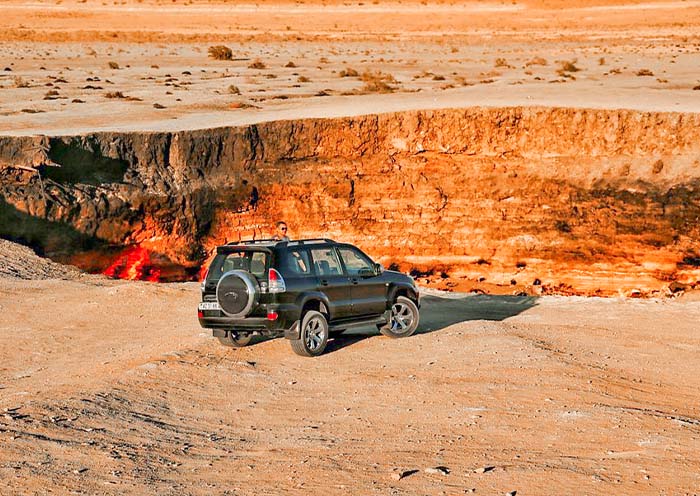
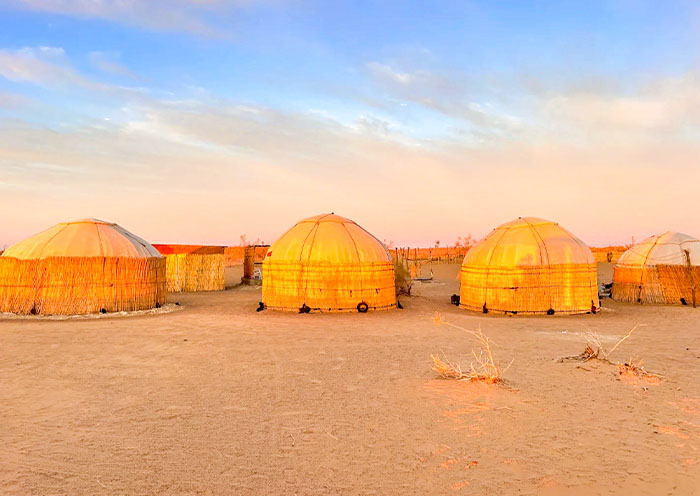
This morning, enjoy picnic-style breakfast at Darvaza in the desert. Afterward, drive north through the vast Karakum Desert to Kunya-Urgench (276 km, about 5 hours).
Located in northwestern Turkmenistan, Kunya-Urgench was once one of Central Asia’s most prosperous cities and the capital of the powerful Khwarazmian Empire. It reached its peak in the 11th-12th centuries as both a major Silk Road trade hub and a leading center of science, culture, and art in the Islamic world. Many renowned scholars worked here, making it a city to rival Bukhara and Samarkand. Today, what you see are ancient ruins (dating from the 11th to 16th centuries) scattered across the desert landscape, but the site is in fact recognized as an important UNESCO World Heritage Site (since 2005). It is a place where you can trace the diverse methods and decorative styles of Islamic architecture in Central Asia.
On arrival, begin your visit at the Kutlug-Timur Minaret, soaring 60 meters high and the tallest structure on site. Continue to the Mausoleum of Sultan Tekesh (12th century), noted for its distinctive conical dome. Then explore the highlight of the complex, the Mausoleum of Turabeg Khanum (14th century), one of the most magnificent in the city. Take time to step inside and admire its breathtaking dome and intricate decorations. Also visit the Mausoleum of Il Arslan (12th century), where the square base and decorative brickwork reflect early Islamic architecture.
After your tour, you will be driven to the Shavat–Dashoguz border crossing between Uzbekistan and Turkmenistan. Complete customs and passport control formalities on both sides, then walk to the exit of the border area.
Here, your Uzbekistan driver will be waiting for you with a sign displaying your name. Meet and greet your driver, then continue your journey with a scenic drive to Khiva in Uzbekistan (about 60 km, 1 hour).
Upon arrival, transfer to your hotel in Khiva, check in, and enjoy a good rest in this historic Silk Road city.
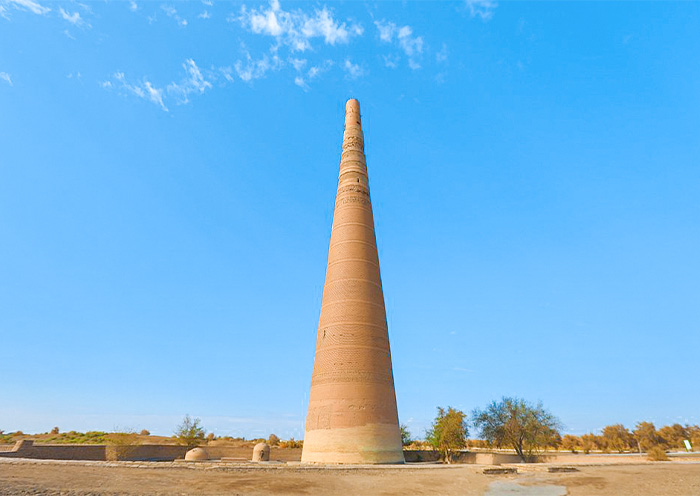
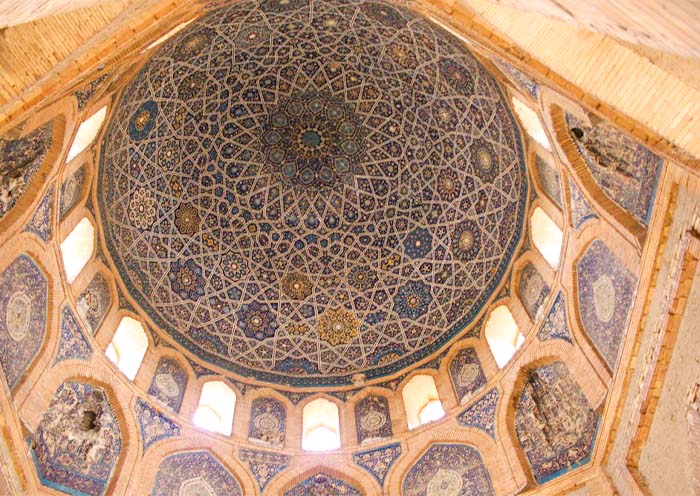
“I would offer a bag of gold merely to catch a glimpse of Khiva.” This well-known Central Asian saying perfectly captures the city’s legendary allure. Khiva is a living “open-air museum,” a place where stepping through its gates feels like traveling back to the medieval era.
The highlight of Khiva is Itchan Kala, the perfectly preserved inner-walled city of the Khwarezm Empire (10th-17th centuries). Enclosed by 10-meter-high mud-brick walls, this UNESCO World Heritage site covers just 26 hectares and is home to about 2,000 residents. All its treasures - palaces, mosques, madrasahs, minarets, and mausoleums - lie within a walkable 1-kilometer radius, making it easy to explore on foot in half a day.
After breakfast, follow your guide through the Ata Darvaza (West Gate) to begin your journey through Khiva’s most iconic landmarks. Admire the turquoise-glazed Kalta Minor Minaret (the “Short Minaret”) and the nearby Muhammad Amin Khan Madrasah, the largest in Khiva. Continue to the peaceful Sayid Allauddin Mausoleum (14th century) and the Pakhlavan Makhmud Mausoleum, the holiest site in Khiva with its striking turquoise domes.
Climb (optional, self-pay) the Islam Khoja Minaret - at 57 meters tall, it offers breathtaking panoramic views over the city. Step into the Juma Mosque (Friday Mosque) with its mesmerizing forest of 218 wooden columns, and admire the intricate tilework at Allakuli Khan Madrasah. Explore the elegant Tosh Hovli Palace (Stone Palace) with its harem quarters and mirrored halls, and visit the Mohammed Rakhim Khan Madrasa for a glimpse of Khiva’s cultural history.
Also, explore Kuhna Ark (Old Fortress), a 17th-century citadel where you can see the khans’ harem, mint, stables, arsenal, mosque, and jail. If time permits, walk along the Itchan Kala walls (self-pay) for unforgettable panoramic views - a perfect spot to watch the sunset over Khiva’s timeless skyline. (Fun fact: Itchan Kala is featured on the 100,000 Uzbekistani som banknote!)
This afternoon, transfer from Khiva to Urgench International Airport for your flight back to Tashkent (about 1 hr 20 mins). Upon arrival in Tashkent, you will be transferred to your hotel. You’ll have time to explore Tashkent on your own.
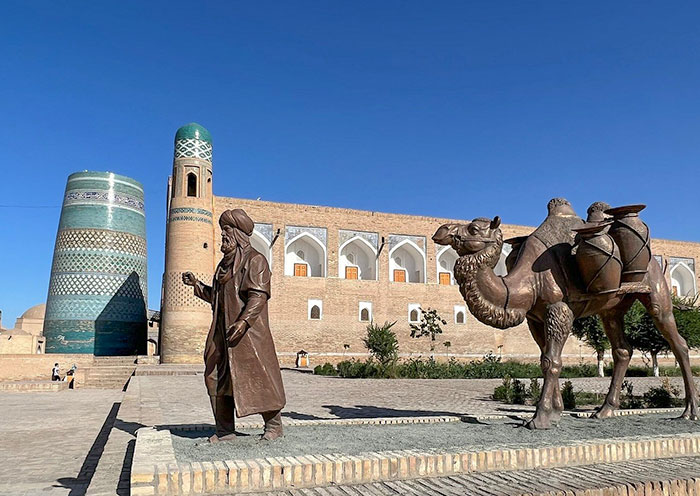
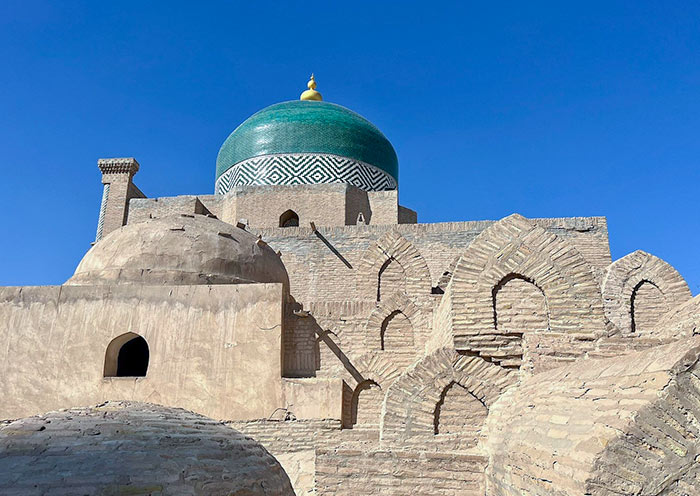
After breakfast, it is time to say goodbye to Tashkent. You will be transferred to the airport for your flight to your next destination or for your journey home. Your 14-day Uzbekistan Tajikistan Turkmenistan tour through Tashkent concludes here.
(Tip: Please inform us of your flight details in advance so we can arrange your airport transfer accordingly.)
Optional Extension:
Uzbekistan, Tajikistan and Turkmenistan can be parts of a larger Central Asia journey. You may also explore other highlights in Kazakhstan, Kyrgyzstan. We can customize a Central Asia tour based on your preferred duration and interests.
Thank you for choosing Asia Odyssey Travel for your Uzbekistan Tajikistan Turkmenistan tour. We look forward to welcoming you back on your next journey!
Price: What’s Included & What’s Excluded
What's Included:
What's Excluded:
Central Asia Trip Notes & Booking Tips
| Country | Highlights | Must-Do Experiences |
|---|---|---|
| Kazakhstan | Endless steppe, futuristic cities, striking natural wonders | Explore Almaty’s lively streets, marvel at Charyn Canyon, ride cable cars to mountain viewpoints, and learn about nomadic horse culture |
| Kyrgyzstan | Mountain peaks, alpine lakes, nomadic spirit | Stay in a yurt at Issyk-Kul Lake, visit Burana Tower, hike alpine gorges, and watch eagle hunting demonstrations |
| Uzbekistan | Silk Road jewels, turquoise domes, vibrant bazaars | Wander Registan Square in Samarkand, explore Bukhara’s old town, admire mosaics in Shakhrisabz, shop for silk, spices, and carpets |
| Tajikistan | Rugged mountains, hidden valleys, Sogdian history | Discover Penjikent’s ruins, trek to the Seven Lakes, and meet locals in remote mountain villages |
| Turkmenistan | Marble cities, desert mysteries, Silk Road ruins | Camp by the fiery Darvaza Gas Crater, explore Ancient Merv, and see Ashgabat’s white-marble monuments |
- Spring (April June): Mild weather, blooming valleys, fewer crowds
(1) Perfect for sightseeing in Uzbekistan’s Silk Road cities (Samarkand, Bukhara, Khiva) before the summer heat. (2) Kyrgyzstan’s and Kazakhstan’s mountains are lush and green, great for gentle hikes. (3) Desert areas in Turkmenistan are comfortable for visiting Darvaza Gas Crater and Merv.
- Autumn (September October) - Most Recommended Season: Pleasant temperatures, colorful landscapes
(1) Ideal time for a grand tour of all 5 Stans. (2) Crisp, sunny days make exploring cities and mountain regions easy. (3) Harvest season - fresh fruits, bazaars full of melons, grapes, pomegranates. (4) Issyk-Kul Lake and alpine gorges in Kyrgyzstan are at their most photogenic.
- Summer (July August): Hot in deserts & Silk Road cities (up to 40°C), but: great for high-altitude trekking in Kyrgyzstan and Tajikistan (Pamir Mountains, Seven Lakes).
For most western / developed-country travelers, Kazakhstan, Kyrgyzstan, Uzbekistan, and Tajikistan are fairly easy to enter (visa-free or e-visa) if you plan properly.
Turkmenistan remains the most challenging: must plan ahead, may need a LOI, possibly limit to tour operator itineraries.
Always check entry point regulations (airport vs land border), as some visas / e-visas / visa-on-arrival are only valid through certain border crossings.
Double-check the duration you're allowed (30, 45, 60, 90 days) - depends heavily on your passport country.
| Theme | Highlights | Where |
|---|---|---|
| Silk Road Cultures | Wander historic Silk Road cities with turquoise domes and caravanserais | Uzbekistan: Samarkand, Bukhara, Khiva |
| Explore an ancient Sogdian city and its 7thcentury frescoes | Tajikistan: Penjikent | |
| Contrast Ashgabat’s modern whitemarble skyline with the ruins of ancient Merv | Turkmenistan: Ashgabat, Merv | |
| Meet artisans weaving carpets, baking traditional bread, crafting felt yurts - living nomadic traditions | Across Central Asia (community workshops, markets, yurt makers) | |
| Nature Landscapes | Marvel at the Darvaza Gas Crater glowing in the Karakum Desert | Turkmenistan: Darvaza, Karakum Desert |
| Relax by IssykKul, the “Pearl of Kyrgyzstan,” ringed by snowcapped peaks | Kyrgyzstan: IssykKul Lake | |
| Hike to Tajikistan’s Seven Lakes or explore the “little brother” to the Grand Canyon | Tajikistan: Seven Lakes; Kazakhstan: Charyn Canyon | |
| Experience nomadic life in a yurt camp, ride horses in alpine valleys, stargaze on the steppe | Kyrgyzstan, Kazakhstan (yurt camps, alpine pastures) |
- Darvaza Gas Crater camping with desert stargazing
- In-depth Silk Road exploration of Samarkand’s old city
- Tajikistan’s Seven Lakes hike with a lakeside picnic
- Kyrgyz falconry show and hands-on yurt-making experience
- Charyn Canyon hike plus Almaty cable car to a skyline night view
- Tajik home visit with demonstrations of traditional handicrafts
Our tour is designed to provide a comprehensive experience without feeling overly rushed. We balance city tours with travel days to ensure you get enough rest. While some days involve long drives between destinations, we plan strategic stops for sightseeing and breaks. You'll have time to explore the major sites in each city and enjoy the journey between them. The pace varies by region: cities like Samarkand are fast-paced, while the mountain regions of Tajikistan and Kyrgyzstan offer a slower, more relaxed tempo.
Here’s what to expect at the most commonly used checkpoints:
| Border Crossing | Connects | Opening Hours | Crossing Time | Crossing Type | Notes for Travelers |
|---|---|---|---|---|---|
| Oybek | Tashkent (Uzbekistan) ⇆ Khujand (Tajikistan) | Daily, usually 08:00–18:00 | ~30–60 min (may be longer on weekends/holidays) | Pedestrian & vehicle | One of the busiest crossings; be ready for lines. Good road conditions on both sides. |
| Jartepa | Samarkand (Uzbekistan) ⇆ Penjikent (Tajikistan) | Daily, 08:00–18:00 | ~20–40 min | Pedestrian & vehicle | Most convenient for travelers; short transfer, border staff generally friendly. |
| Shavat | Khiva/Urgench (Uzbekistan) ⇆ Dashoguz (Turkmenistan) | Daily, 09:00–18:00 | ~45–90 min | Pedestrian only (vehicles drop/pick up travelers at both sides) | Requires Turkmen visa in advance or pre-arranged LOI. Can be busy in mornings. |
| Farap | Bukhara (Uzbekistan) ⇆ Turkmenabat (Turkmenistan/Mary route) | Daily, 08:00–18:00 | ~1–2 hrs | Pedestrian & vehicle | Key crossing for travelers heading to Merv; customs can take longer, be patient. |
| Korday | Bishkek (Kyrgyzstan) ⇆ Almaty (Kazakhstan) | Open 24 hrs | ~30–60 min (rush hours longer) | Pedestrian & vehicle | Major highway crossing, usually efficient; popular with locals and travelers. |
Traveler Tips:
- Timing Matters: Arrive early in the morning to avoid queues, especially at Shavat & Farap.
- Paperwork Ready: Keep passports, visas (or e-visa printouts), and customs forms handy.
- Walking vs. Vehicle:At some borders (Shavat, Oybek), you may need to walk across the neutral zone (few hundred meters).
- Seasonal Considerations: Summer is busier due to local travel; winter may bring delays from weather.
- Patience & Flexibility: Border procedures are generally friendly but not always fast - use this time to experience the real pace of Central Asia.
Hotels & Camping Experiences in Central Asia
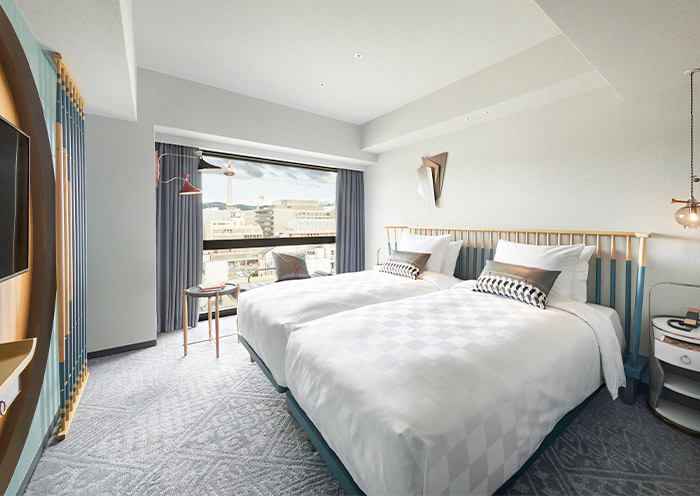

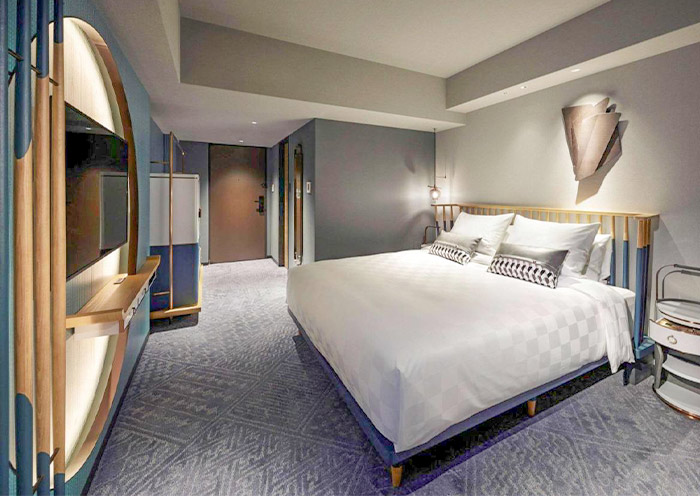
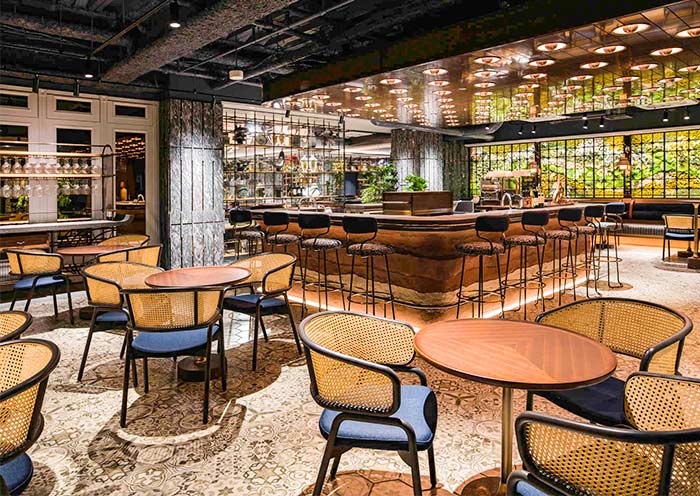
We carefully select accommodations across the five “Stans” to ensure both comfort and authenticity.
In Cities:
You will stay in well-located hotels (3-5 stars, with 4 stars recommended) - a mix of international chains and charming boutique hotels. All are clean, comfortable, non-smoking, and offer easy access to lively bazaars, shopping streets, and major attractions. Free Wi-Fi is available in most properties.
In Villages & Countryside:
Around the Seven Lakes, Pamir, and Issyk-Kul areas, accommodation is mainly in cozy family guesthouses, mountain lodges, or traditional yurt camps. Facilities are simple but authentic, letting you experience the local way of life. Yurt camps in Kyrgyzstan and Kazakhstan are usually shared or semi-private, with communal or partially private bathrooms. Nights can be chilly, but electric blankets or stoves are typically provided.
Camping Experience:
At places like the Darvaza Gas Crater, you will stay in fixed or mobile tents with basic shared facilities. Nights can be windy with significant temperature drops, so warm clothing is recommended.
Photo Gallery for This Itinerary
Latest Central Asia Tours Reviews from Our Customers

David
United States
Date of Experience: Oct 15, 2025
Tour Customized by: Amy
You May be Interested in This Tour: 26 Days Central Asia Tour: In-Depth Journey through the Five Stans

Sofia Rodriguez
Spain
Date of Experience: Sep 25, 2025
Tour Customized by: Anthony
You May be Interested in This Tour: 5 Days Classic Turkmenistan Tour: UNESCO Ancient Wonders & Door to Hell

Marco-Bianchi
Italy
Date of Experience: Sep 03, 2025
Tour Customized by: Alina
You May be Interested in This Tour: 8 Days Uzbekistan Silk Road Tour - Tashkent, Khiva, Bukhara & Samarkand
Price: Request
(Based on a private tour for two people. Price varies depending on program, travel date, number of people.)
Free Enquiry! You don’t need to pay for the reservation.
- United States (+1)
- Australia (+61)
- Singapore (+65)
- Malaysia (+60)
- Philippines (+63)
- Canada (+1)
- Italy (+39)
- Indonesia (+62)
- United Kingdom (+44)
- Spain (+34)
- Mexico (+52)
- Hong Kong (+852)
- Thailand (+66)
- United Arab Emirates (+971)
- New Zealand (+64)
- South Africa (+27)
- Germany (+49)
- Brazil (+55)
- India (+91)
- France (+33)
- Vietnam (+84)
- The Netherlands (+31)
- Saudi Arabia (+966)
- Ireland (+353)
- Argentina (+54)
- Switzerland (+41)
- Romania (+40)
- Pakistan (+92)
- Japan (+81)
- Portugal (+351)
- Bangladesh (+880)
- South Korea (+82)
- Puerto Rico (+1)
- Türkiye (+90)
- China (+86)
- Belgium (+32)
- Qatar (+974)
- Greece (+30)
- Taiwan (+886)
- Austria (+43)
- Poland (+48)
- Israel (+972)
- Chile (+56)
- Sri Lanka (+94)
- Nigeria (+234)
- Peru (+51)
- Colombia (+57)
- Hungary (+36)
- Nepal (+977)
- Denmark (+45)
- Bulgaria (+359)
- Norway (+47)
- Slovenia (+383)
- Sweden (+46)
- Kuwait (+965)
- Costa Rica (+506)
- Ecuador (+593)
- Venezuela (+58)
- Malta (+356)
- Croatia (+385)
- Tunisia (+216)
- Czechia (+420)
- Mongolia (+976)
- Bahrain (+973)
- Mauritius (+230)
- Papua New Guinea (+675)
- Cambodia (+855)
- Dominican Republic (+1)
- Luxembourg (+352)
- Finland (+358)
- Guatemala (+502)
- Myanmar (+95)
- Maldives (+960)
- Slovakia (+421)
- Laos (+856)
- Serbia (+381)
- Brunei (+673)
- Oman (+968)
- Macao (+853)
- Panama (+507)
- Morocco (+212)
- Jordan (+962)
- Georgia (+995)
- Fiji (+679)
- Bolivia (+591)
- Lithuania (+370)
- Bahamas (+1)
- Cyprus (+357)
- Latvia (+371)
- Bhutan (+975)
- Iraq (+964)
- Iran (+98)
- Kenya (+254)
- Jamaica (+1)
- Zimbabwe (+263)
- Azerbaijan (+994)
- Uruguay (+598)
- Estonia (+372)
- Andorra (+376)
- Cameroon (+237)
- Ghana (+233)
- Kazakhstan (+7)
- Nicaragua (+505)
- Egypt (+20)
- Russia (+7)
- Albania (+355)
- Réunion (+262)
- Montenegro (+382)
- Algeria (+213)
- Afghanistan (+93)
- Martinique (+596)
- Uganda (+256)
- Honduras (+504)
- North Macedonia (+389)
- Trinidad and Tobago (+1)
- Suriname (+597)
- Antigua and Barbuda (+1)
- Zambia (+260)
- Ukraine (+380)
- Armenia (+374)
- Barbados (+1)
- Belarus (+375)
- Palestine (+970)
- Lesotho (+266)
- Moldova (+373)
- Ethiopia (+251)
- French Polynesia (+689)
- Gambia (+220)
- Guam (+1)
- Gibraltar (+350)
- Isle of Man (+44)
- New Caledonia (+687)
- El Salvador (+503)
- Comoros (+269)
- Seychelles (+248)
- Chad (+235)
- Samoa (+685)
- Cook Islands (+682)
- Palau (+680)
- Paraguay (+595)
- DR Congo (+243)
- Solomon Islands (+677)
